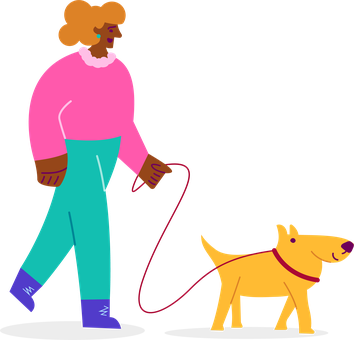Homelessness services come into contact with people who have learning disabilities. But how good is your service at recognising this and providing appropriate support? A new toolkit and forthcoming webinar will help you improve, explains , Clinical Psychologist, Dr Anna Tickle .
How would life be if you spent most of every day feeling misunderstood and confused by what other people said, did, or demanded of you? Even when those people are there to provide you with support. How would you feel if you found it difficult to track conversations, remember information, solve day-to-day problems, or pick up new skills? What behaviours might you develop to cope with navigating a world largely designed by and for those most able? And might those same behaviours lead you to experience further challenges?
Individuals with learning disabilities have many strengths, and often much resilience, but in an ableist society, the odds are often stacked against them. To have a learning disability means that since childhood you have had a significantly lower than average ‘IQ’ (‘intelligence quotient’, a measure of thinking skills) and perform significantly below average on ‘activities of daily living’ - things like self-care, day-to-day maths and literacy, health and safety, social relationships and school and work. Communication is often a key challenge if others do not adapt their use of written or verbal language.
It can be easier to recognise learning disabilities in some individuals than others, for example if a person also has Down’s Syndrome with its distinctive facial features, or a more severe impairment requiring higher levels of support. But for many, learning disabilities are hidden, not recognised or misunderstood. It is not uncommon for people to reach adulthood without a diagnosis and with their difficulties seen as ‘behavioural’ or related to their personality. I have worked with people who have internalised labels they have been given by others - “stupid”, “thick”, “lazy”, “angry” and worse. The impact on self-esteem and mental health is not hard to imagine.
People with learning disabilities are more likely than others to experience childhood abuse and be disadvantaged in terms of education and work, socioeconomic status and community participation, and have poorer outcomes in terms of physical and mental health and life expectancy. Unsurprisingly, this means they are likely to find themselves within homelessness services, without their needs being recognised.
Having worked in learning disabilities services prior to moving to the homelessness sector in 2018, I was keen to raise awareness of learning disabilities and was inspired by the Homelessness and Brain Injury Toolkit and the Autism and Homelessness Toolkit. It turned out that I was not alone: services in Westminster were pulling information together to help staff understand learning disabilities, and I heard examples where individuals who had been given a learning disability diagnosis whilst homeless were able to access more appropriate support as a result.
‘Dylan’ was one of these people. He collaborated with Victoria Aseervatham, Rough Sleeping Commissioner for Westminster, and others to produce the Learning Disabilties and Homelessness Toolkit. Leigh Andrews, Speech and Language Therapist at Change Communication, was involved, keen to highlight communication needs of those with learning disabilities and, importantly, offer concrete suggestions for how homelessness services can meet those needs. Professor Karen McKenzie of Northumbria University, who was developing learning disabilities screening tools and researching their use in homelessness services, also collaborated.
Together, we hope the toolkit helps to raise awareness of the steps everybody in homelessness services can take to recognise and better support those with learning disabilities to move towards stable housing and opportunities to thrive. To find out more about learning disabilities and homelessness, and how you can improve the support offered in your services, come along to a free webinar on Wednesday 5th October.
